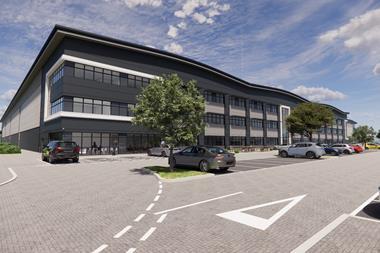In a few months’ time, in January 2019, the dream of Sir David Tweedie, who a decade ago joked that one of his great ambitions before he died was “to fly in an aircraft that is on an airline’s balance sheet”, will finally come true.

At the time, Tweedie was the chairman of the International Accounting Standards Board (IASB), which in 2016 revealed the new accounting model that from next year will force companies to reveal the full costs of leases in their annual reports.
In the past, a company would not have had to disclose these details, or think too much about how this would have affected the way other stakeholders saw its financial strengths. More generally, businesses would have never thought about a lease in that context. A chief finance officer could have told stakeholders: “Look, we do have a 10-year lease – or 20-year lease – that commits the company to £20m, but that’s not going to appear on our balance sheet.” It was the financial equivalent to a ‘nothing to see here’.
But now, with new regulations coming into force soon, instead of simply detailing annual rents, businesses will have to record leases as long-term liabilities – as well as assets. This means that the outside world will be able to more deeply scrutinise their balance sheets. Apart from the normal bookkeeping headaches this will cause to many companies, the new standard is already considered by many to be the biggest accounting change to affect real estate in decades. But what will it mean, exactly?

As a direct consequence of the new International Financial Reporting Standards (IFRS), all companies that lease property to operate their businesses will see a significant increase in reported assets and liabilities. If you consider that the majority of businesses in the UK do not own their offices, you can see how much of a problem this will be. Recent figures show that UK occupiers will be forced to add a shocking £200bn of liabilities to their balance sheets.
The larger the portfolio, the greater the impact. Indeed, the new regulations will particularly affect large companies – and especially public companies – which will be obliged to produce a lot of details in their accounts. Again, the bigger the company, the more amount of space it has, the more level of detail it will have to produce in its accounts. Most importantly, the bigger these numbers, the bigger the long-term liabilities.
These liabilities can affect a business in many ways. Firstly, they can erode the way the outside world sees the financial health of a company. Liabilities can also affect a company’s credit rating, or how easily it is able to get credit terms with suppliers or how cheaply it can connect capital. Clearly, a wide range of crucial aspects can be influenced by the overall shape of a company’s financials.
Flexible workspace
UK companies will need to be more conscious and, more than ever, will need to put their property costs into sharp focus. The finance teams and CFOs will be more mindful about the long-term property lease commitments their companies are entering into. More importantly, I am sure they will be forced to ask themselves: do we have to enter such long-term leases in the first place? Should we do it, even if it creates a new burden on our balance sheet?
But amid the disruption the IFRS will bring, an opportunity will also open up: the chance for UK businesses to lower the overhead cost of unused space by turning to flexible workspace.
The flexible or serviced office sector is experiencing an unprecedented expansion. This year, flexible office operators represented around 20% of take-up in the entire London office market, which remains the global capital for this sector, with some 10m sq ft of space under occupation.

Central London saw a record 2.5m sq ft leased to flexible workspace providers in 2017, a 190% increase on the previous year. Market analysts predict these numbers will grow even further.
‘Flexible’ means that this workspace can be tailored on-demand and can change at any particular time as requirements evolve. Under the IFRS, most companies will have to shrink and maximise the use of their office space. They will also, naturally, take on shorter leases.
Lease length
The contraction of the average lease length is a process that has been ongoing for a number of years and is unrelated to the new accounting standards. The average length of leases in central London is currently around three years – break clauses included. That figure has halved in the 10 years since the global financial crisis and is likely to decrease even more.
Despite what certain people might think, flexible workspace is not just for one-man bands, tech companies and start-ups. Every day, more and more corporate occupiers are allocating teams, divisions and often entire business operations to serviced, co-working or flexible workspace.
There is a wide range of choice available when it comes to high-quality, conveniently located and value-for-money flexible workspace. Today, more than ever before, companies have a real option to downsize and significantly reduce the amount of space allocated on conventional long-term leases, and use flexible workspace instead.
Practical solutions
At Regus, we are constantly engaged to inform our potential customers about these scenarios, particularly in order to offset the impact of the accounting changes. We also advise our existing customers about the most practical solutions for their businesses. From January, both small and large occupiers have a huge opportunity to make greater use of their space by going flexible. We are already seeing more and more businesses within our portfolio doing it ahead of time, moving from traditional long-term leases to flexible options.
There are a lot of good reasons to get into flexible workspace. We are all experiencing a technological revolution that is changing the very nature of business. Tech improvements have made people more mobile and enabled agile working. Employees, for example, no longer have to be in the same place all the time. They can work remotely, on the move. Just like their employees, companies need to be more agile and respond more quickly to events in their markets.
People often ask me if I think that the IFRS will represent ‘the death of the traditional lease’. What I can say is that the new standard will help continue the expansion of flexible. It will also help to give companies more focus on their property, both of which are very good achievements. Ultimately, the IFRS will be just the latest catalyst for flexibility to add to a number of catalysts that already exist.
Richard Morris, chief executive, Regus
About Regus
Regus is the world’s largest provider of flexible workspace solutions, enabling individuals and businesses to work where they want, when they want, and how they want – at a range of price points. Founded in Brussels in 1989, our ever-growing network includes almost 3,000 locations in 110 countries.
PW Perspectives Supplement Winter 2018
- 1
- 2
- 3
 Currently reading
Currently readingNew accounting standards will encourage flexibility
- 4
- 5
- 6
- 7
- 8
- 9
- 10
- 11
- 12
- 13
- 14











































No comments yet